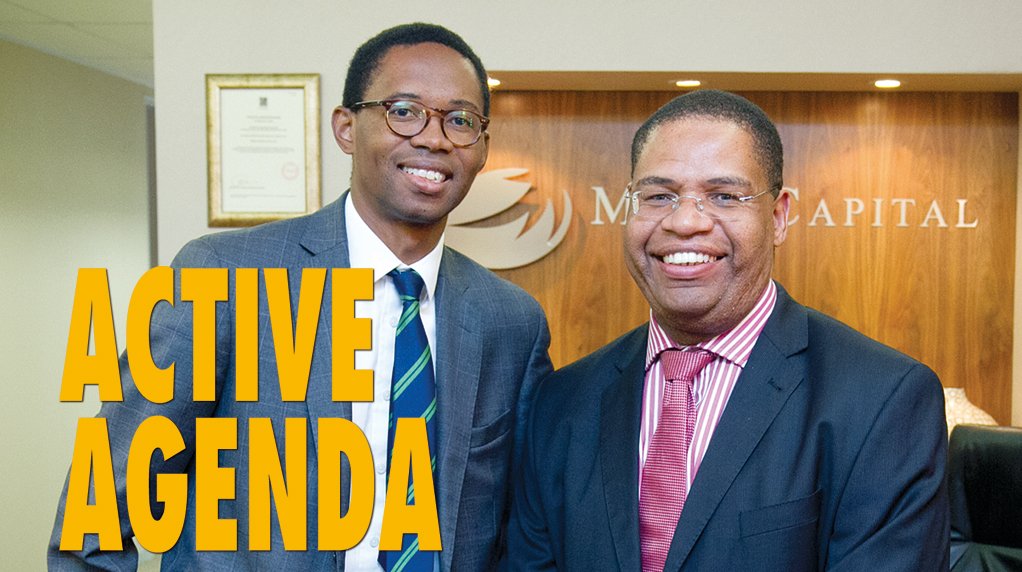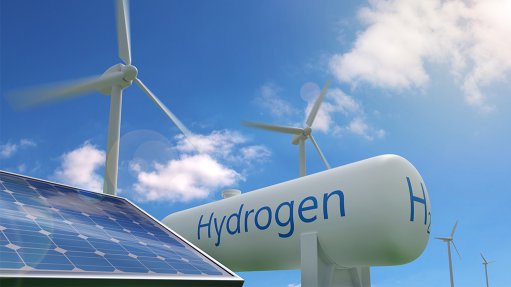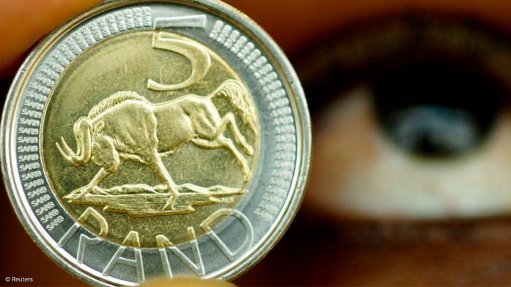Private-equity boutique sees emergence of black industrialists as natural next step
The rise of black business and black industrialists in South Africa will be a natural process, says Medu Capital executive director Nhlanganiso Mkwanazi.
“Eleven years ago, when we started our private-equity business, we were influenced by experience. So, as more and more people gain a better education, market access and experience, black business will expand. It is only a matter of time.”
He says there is evidence that the “pace is not fast enough”, but that there is also evidence that “more and more people are doing more and more, in more parts of the economy”.
Mkwanazi and fellow executive director Ernest January formed Medu Capital in 2003.
The 11-year-old business the former colleagues at professional services firm Deloitte started targets well-run, medium-sized mining and engineering businesses, among others, which require capital injection.
“We are an investment management business focused on private equity. We raise money from institutions such as pension funds for investments in medium-sized businesses,” says Mkwanazi.
“We identify opportunities in well-run businesses that have the potential to become bigger – that can become corporate entities, but require greater depth in terms of their commercial skills or capital.”
Medu Capital has a strong history in the mining and engineering sectors, having invested in companies such as Vergenoeg Mining Company, Zest Electric Motors, Wekaba Engineering, IWC, KSB Pumps and Galison Manufacturing.
Having completed two rounds of investments – Medu I and Medu II – January and Mkwanazi are now raising money for Medu III.
Medu I had R300-million to spend, and has been fully realised following investments in nine companies. Medu II is R900-million-strong, and is fully invested.
Medu III is targeted to be much bigger at R2-billion.
From Brait, Anglo to Medu
“We realised that established private-equity firms were more focused on listed companies, or large, older companies, and that they had little interest in medium-sized, private companies. We thought there existed an opportunity for us to act as a conduit for capital to these private companies,” says Mkwanazi.
He says there was the added appeal of creating a black-owned enterprise in the equity sphere.
“Creating more black enterprises certainly has relevance in the South African context.”
Mkwanazi is quick to note, however, that Medu Capital does not want to be seen as a black-owned firm. Instead, the company wants to be viewed as one of the country’s leading private-equity firms.
“We are a South African business, and we need to sustain what we do for the next 20 years and more.”
Mkwanazi worked at Deloitte, and then spent a year at management consulting firm Gemini Consulting before moving to investment company Brait Private Equity, where he served as a director.
He grew up in Atteridgeville, Pretoria, and completed his studies through Unisa.
Mkwanazi and January are both chartered accountants.
January studied at the University of the Witwatersrand and worked at Deloitte, where he met Mkwanazi.
He later joined Anglo American as a research analyst in the investment and streasury department, before rising through the ranks to become a divisional investment manager responsible for the group’s pension fund portfolio.
Moving to RMB Asset Management, he was appointed a director responsible for transformation and investment management.
Brait was a shareholder in Medu Capital when the firm started in 2003, but today the business is wholly owned by its management.
Funding Sources
Medu Capital raises its funding from sources such as the Eskom Pension and Provident Fund, the Public Investment Corporation, Ke Nako Capital and the Transnet Retirement Fund, says January.
Funding from abroad, however, is also increasing, and comes from groups such as the Netherlands’ FMO development bank, and Swiss investment company Obviam.
“Around 20% of our funding comes from overseas now,” says January.
“We are trying to secure more, as private equity is perhaps a longer understood asset class overseas.”
Mkwanazi says Medu Capital is still busy with fundraising for Medu III.
The company announced in September that it had signed for the acquisition of the Van Schaik academic book group from Times Media Group, in a deal worth R325-million, as part of the Medu III investment round.
Retail book chain Exclusive Books formed part of the original deal, but has since been excluded, notes Mkwanazi.
“We believe the educational book market in South Africa has a lot of potential. New universities are due to open in the Northern Cape and Mpumalanga, which means the university market will expand. We see more and more South African capital used for education, and we see an increasing commitment from government to invest in education.”
Strong Focus on Mining
Medu III will target a range of investments, says January.
The companies the firm is looking at include mining supply businesses that have the potential to expand into Africa, while healthcare and supply chain companies are also on its radar.
There is a vast amount of depth and expertise in the South African mining sector, emphasises Mkwanazi.
“There are many owner-managed businesses supplying the mining sector that are natural targets for Medu Capital. This is an area where South Africans have a lot of competence that can easily be transferred to the rest of the world.”
Mkwanazi adds, however, that current low commodity prices are a concern, and could have a sharp negative impact on businesses such as these.
Medu II invested in Wekaba Engineering, which supplies engineering components used in roof support products to the local mining industry.
“We feel this technology can be exported to other mining regions in the world,” says Mkwanazi.
While Medu is typically interested in medium-size businesses, it also prefers enterprises that are well established.
“We prefer businesses with sound systems, and where there is no need to replace management,” says January.
“We take a significant interest – sometimes, a controlling stake in the company. This means we own the risk and we feel responsible – but we complement, we do not substitute the management of the company. We are active investors, but we are more strategically and financially involved, and not so much operationally. We rely on management to use their expertise to achieve their and our goals.
“Our entry is privately negotiated and well planned, but we do not rescue businesses,” he adds.
That said, however, Medu will still query certain aspects of the business once it has invested.
“We’ll look at reporting structures to ensure better decision-making,” says Mkwanazi. “We also want the business to become institutional and not rely on the memories of the people who work there. We’ll also look at the board’s decision- making processes, budgeting and annual planning.
“We want the business to move forward, and to have a strategy for how that will happen. For some companies, this means introducing new products, or broadening their geographical coverage.”
Mkwanazi emphasises that all Medu’s funds have a limited life, with a typical horizon of 10 to 12 years before the company exits its investments.
Following 11 years in the equity business, Medu Capital no longer has to scour the economic landscape seeking investment opportunities, as it had to do in those very first years.
“In the majority of business deals, we are approached by companies and requested to invest. We are well established now and we have a compelling track record,” says Mkwanazi.
“Perhaps we were a bit aggressive when we started – maybe even somewhat naive – but now, 11 years down the line, we have established our third fund. We have earned our position and hope to show significant growth over the next 11 years.”
Mining Strikes, Recession Impact
Medu Capital has made more than 20 investments to date.
Mkwanazi believes the company has a sound record, proved by the fact that the Medu I and II investment rounds can now be followed by Medu III.
“You do get your disappointments, yes, and we have been tested over the past 11 years, but, generally, we have been resilient and able to work through the challenges.
”
Medu Capital’s exposure to the steel sector proved challenging, Mkwanazi notes, with this market almost shutting down during the 2009 recession.
“Through strong action taken by management and the shareholders, today the business is going strong.”
Medu Capital invested in the South African Roll Company, or Sarco, in Medu II. Sarco is Africa’s only producer of rolls and sleeves for the global steel industry.
The continued strikes in South Africa’s mining sector are Medu Capital’s newest challenge.
“These are not things you can foresee, and the strikes have had an impact on some of our businesses. We are now forced to relook their costs and markets,” says Mkwanazi.
“Wekaba Engineering had to diversify from supplying primarily mines, for example. It is quite challenging, but we have made the necessary changes.”
January says Medu Capital measures its success in terms of money in on investment, versus money out when it exits a company.
Medu Capital targets an above-average rate of return on its investment.
“Looking at all investments to date, we have managed to achieve this goal,” says January.
He adds that Medu III will see more of the same from Medu Capital, but with something of a twist, as the company now has the mandate to make a portion of its investments outside South Africa, but still in Africa.
“We have spent the last three years studying certain countries in the Southern African Development Community and East Africa, looking at their infrastructure and networks to see where we can invest.”
Unwilling to say more, January notes only that Medu Capital will “not rush into anything”.
SA Economic Challenges
As to what Medu Capital needs to do to become a more successful South African business, Mkwanazi says the company would benefit greatly from a local economy that achieves gross domestic product (GDP) growth of more than the current “patchy 2%”.
“Our companies will have a lot more scope to grow if GDP growth was higher. It is a tough environment out there for our portfolio companies, and the volatility of the currency is not helping.”
January adds that 2% GDP growth is “below average” and that South Africa “can certainly do better”.
He notes that a stronger global economy will, however, also assist South Africa’s GDP performance.
“We have a National Development Plan, we know what needs be done, and it must now be implemented.”
More harmony in the workplace among all parties and in the broader local community will also assist South Africa, says Mkwanazi.
“This is a key challenge for South Africa. We wish for an environment where we all pull together and work hard to be more competitive.”
Article Enquiry
Email Article
Save Article
Feedback
To advertise email advertising@creamermedia.co.za or click here
Press Office
Announcements
What's On
Subscribe to improve your user experience...
Option 1 (equivalent of R125 a month):
Receive a weekly copy of Creamer Media's Engineering News & Mining Weekly magazine
(print copy for those in South Africa and e-magazine for those outside of South Africa)
Receive daily email newsletters
Access to full search results
Access archive of magazine back copies
Access to Projects in Progress
Access to ONE Research Report of your choice in PDF format
Option 2 (equivalent of R375 a month):
All benefits from Option 1
PLUS
Access to Creamer Media's Research Channel Africa for ALL Research Reports, in PDF format, on various industrial and mining sectors
including Electricity; Water; Energy Transition; Hydrogen; Roads, Rail and Ports; Coal; Gold; Platinum; Battery Metals; etc.
Already a subscriber?
Forgotten your password?
Receive weekly copy of Creamer Media's Engineering News & Mining Weekly magazine (print copy for those in South Africa and e-magazine for those outside of South Africa)
➕
Recieve daily email newsletters
➕
Access to full search results
➕
Access archive of magazine back copies
➕
Access to Projects in Progress
➕
Access to ONE Research Report of your choice in PDF format
RESEARCH CHANNEL AFRICA
R4500 (equivalent of R375 a month)
SUBSCRIBEAll benefits from Option 1
➕
Access to Creamer Media's Research Channel Africa for ALL Research Reports on various industrial and mining sectors, in PDF format, including on:
Electricity
➕
Water
➕
Energy Transition
➕
Hydrogen
➕
Roads, Rail and Ports
➕
Coal
➕
Gold
➕
Platinum
➕
Battery Metals
➕
etc.
Receive all benefits from Option 1 or Option 2 delivered to numerous people at your company
➕
Multiple User names and Passwords for simultaneous log-ins
➕
Intranet integration access to all in your organisation





















